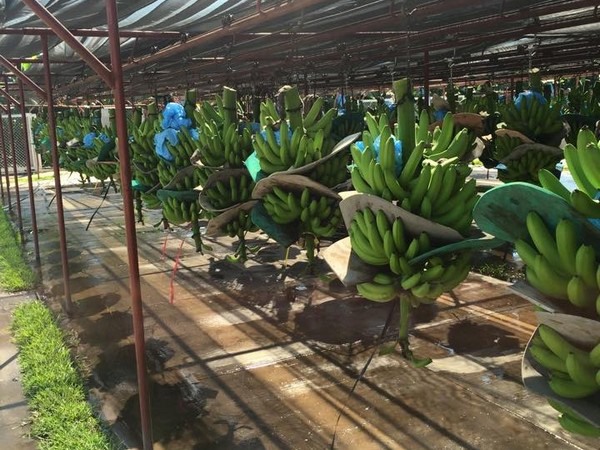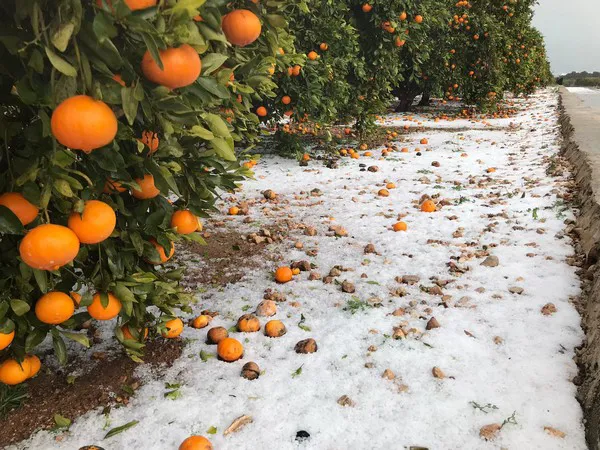It seems like the year 2020 had a surprise for us just about every month, and it was hardly ever a positive one. In the Year Overview we'll look back on some of the major events that happened over the year.
January was no different, as Australia had to deal with devastating wildfires, leading to damages in apple orchards, as well as several softfruit and stonefruit cultivation areas. Meanwhile in South Africa there were lower grape volumes than the previous year, leading to an overall positive mood sentiment on the European market. India's onion problems seemed to have started early on, as it was predicted there there would be a shortage of red onions, which would have to be filled in by European and Egyptian exporters. As for the Indian grapes, it was announced that the exports were up 21% from April to October.

Prices of Chilean cherries in China were under pressure due to higher volumes, while the blueberries exports from Chile to the US were expected to increase by 4%. Mr. Avocado aimed to bring ready-to-eat avocados to B.U.T. supermarkets in China, after hosting a free tasing event to celebrate the occasion. The first successful shipments of goldenberries from Ecuador were exported to the United States. Ecuador also increased volumes of dragonfruit to the US market. Meanwhile the US saw higher demand for mandarins than it had seen in the past ten years.

The Turkish cherry season was predicted to be all about China. Australian sweet potatoes were being sent all over the globe and Zespri managed to gain trademark protection in China. The UK onion harvest was hampered by mixed weather conditions, leading to a challenging season. Organic bananas were stated to have the ability to fight TR4, reducing it up to 90%. The empty mandarin market welcomed the first Moroccan Nadorcotts, while the Mexican blueberry industry was facing important challenges. The first shipment of the Chilean fruit of the season arrived on the US West Coast and the season appeared to be a lot better for Californian citrus. Florida strawberry supplies were tight, at the same time an oversupply of limes pushed the prices downwards in the US. And after months of posturing, the United States and China signed a deal to ease the ongoing trade war.

As the coronavirus was not a global worry just yet, in January there was still great interest in shiitake mushrooms. The oldest family business in South Africa decided to diversify into citrus. Mexican citrus was expected to be better in the 2019-2020 season. The country also exported bananas to China for the very first time, while Chile became China's second largest provider of imported fruit as a whole. The Turkish exporters received some help from the Turkish airlines to make up some lost time. Argentinian lemons saw an increase in their market share in the United States. In the US the domestic onion market felt pressure on the supply and the grape volumes from Peru increased. Chinese New Year caused supplies to be tight for certain produce items. Latin American fruit exporters stated that mangoes had more potential than avocados, and Brazilian papayas guarantee quality and continuity throughout the year.

In the last week of January, Valencia, Spain was hit with a massive storm, causing 62.6 million euros worth of losses. Bangladesh decided they would not be surprised by an Indian onion ban anymore and claimed to stop importing onions from India altogether. The coronavirus started making more waves, Chile started monitoring the fruit exports to China to keep an eye on the coronavirus developments. Fruit Logistica assured its attendees that the virus would not be a direct threat for the event. An Indian pomegranate aril exporter managed to become 100% self sufficient. Chile predicted it would have 9 to 10% less volumes of grapes available in their season. The statistics for the 2019 avocado season in Mexico were made public, the Jalisco avocado exports increased by 30%. Kenya suffered the worst locust infestation in 70 years, causing massive losses in all kinds of crops. For the US, the Californian lemon season was going well. One exporter claimed it would be their biggest blueberry year ever, while Texus citrus exports to Europe turned out to be really low this season.
